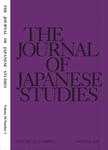版权所有:内蒙古大学图书馆 技术提供:维普资讯• 智图
内蒙古自治区呼和浩特市赛罕区大学西街235号 邮编: 010021

作者机构:Washington Univ Sch Med Dept Psychiat St Louis MO 63110 USA Univ Missouri Dept Psychol Columbia MO USA Chicago Med Sch Dept Psychiat N Chicago IL USA Queensland Inst Med Res Dept Epidemiol & Populat Hlth Brisbane Qld 4006 Australia Queensland Univ Technol Dept Epidemiol Brisbane Qld Australia Royal Prince Alfred Hosp Dept Clin Biochem Sydney NSW Australia
出 版 物:《PSYCHOLOGICAL MEDICINE》 (心理医学)
年 卷 期:1999年第29卷第5期
页 面:1069-1081页
核心收录:
学科分类:0402[教育学-心理学(可授教育学、理学学位)] 1002[医学-临床医学] 10[医学]
基 金:NIAAA NIH HHS [AA07728 AA10249 AA07535] Funding Source: Medline
主 题:慢性酒精中毒/病因学 慢性酒精中毒/遗传学 中枢神经系统抑制药/药理学 乙醇/药理学 疾病遗传易感性 危险性评估 性别因素 成年人 女(雌)性 人类 男(雄)性 中年人
摘 要:Background. Substantial evidence exists for an important genetic contribution to alcohol dependence risk in women and men. It has been suggested that genetically determined differences in alcohol sensitivity may represent one pathway by which an increase in alcohol dependence risk occurs. Methods. Telephone interview follow-up data were obtained on twins from male, female and unlike-sex twin pairs who had participated in an alcohol challenge study in 1979-81, as well as other pairs from the same Australian twin panel surveyed by mail in 1980-82. Results. At follow-up, alcohol challenge men did not differ from other male twins from the same age cohort on measures of lifetime psychopathology or drinking habits;but alcohol challenge women were on average heavier drinkers than other women. A composite alcohol sensitivity measure, combining subjective intoxication and increase in body-sway after alcohol challenge in 1979-81, exhibited high heritability (60%). Parental alcoholism history was weakly associated with decreased alcohol sensitivity in women, but not after adjustment for baseline drinking history, or in men. High alcohol sensitivity in men was associated with substantially reduced alcohol dependence risk (OR = 0.05, 95% CI 0.01-0.39). Furthermore, significantly decreased (i.e;low) alcohol sensitivity was observed in non-alcoholic males whose MZ co-twin had a history of alcohol dependence, compared to other non-alcoholics. These associations remained significant in conservative analyses that controlled for respondents alcohol consumption levels and alcohol problems in 1979-81. Conclusions. Men (but not women) at increased genetic risk of alcohol dependence (assessed by MZ co-twin s history of alcohol dependence) exhibited reduced alcohol sensitivity. Associations with parental alcoholism were inconsistent.